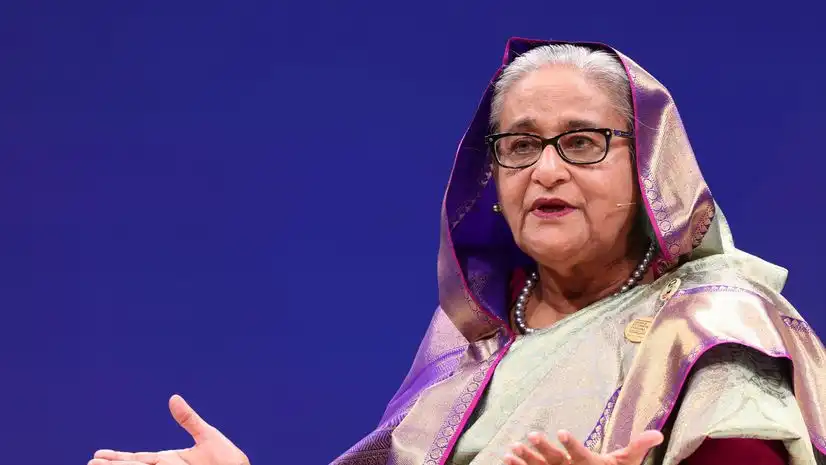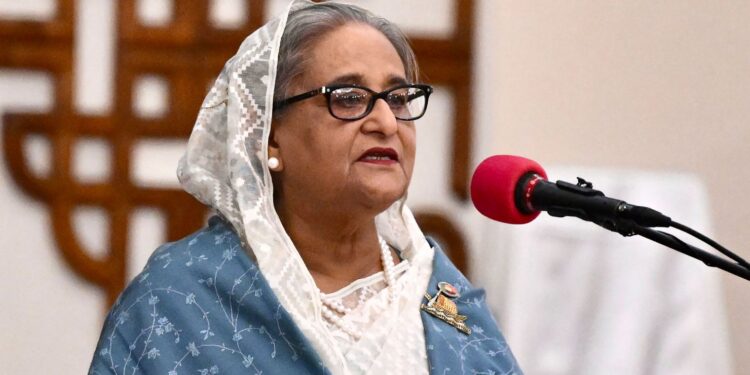Former Bangladesh Prime Minister Sheikh Hasina has been sentenced to six months in prison by the International Crimes Tribunal (ICT), according to reports. The verdict marks a significant development in the country’s political landscape.
Former Bangladesh PM Sheikh Hasina Sentenced to Six Months in Prison by ICT: Report
In a stunning development that has sent shockwaves across South Asia, former Bangladesh Prime Minister Sheikh Hasina has been sentenced to six months in prison by the country’s International Crimes Tribunal (ICT), according to local media reports. The ruling marks a significant chapter in Bangladesh’s political and legal history and has sparked both domestic and international responses.
Background: Who is Sheikh Hasina?
Sheikh Hasina, a towering figure in South Asian politics, served as the Prime Minister of Bangladesh for multiple terms, most recently from 2009 to 2024. She is the daughter of Sheikh Mujibur Rahman, the founding father of Bangladesh, and a long-standing leader of the Awami League, the country’s dominant political party for decades.
Hasina has been credited with significant economic growth, infrastructure development, and digital transformation in Bangladesh. However, her administration has also faced persistent allegations of authoritarianism, curbs on press freedom, and human rights violations.
According to reports, the six-month sentence stems from contempt of court and obstruction-related charges linked to comments and actions by Hasina during her last tenure as Prime Minister. The International Crimes Tribunal, originally established to prosecute individuals involved in war crimes during the 1971 Liberation War, expanded its scope in recent years to include broader crimes against the state and judicial institutions.
The specific details of the charges remain partially undisclosed as the judgment has not yet been made fully public. However, court sources suggest the conviction is tied to Hasina’s alleged interference in legal processes and misuse of executive power in suppressing judicial independence.
The Tribunal declared that Hasina’s actions amounted to “willful defiance” of court orders and represented a “direct assault on the sanctity of the judiciary.” The ruling emphasized the need to uphold the rule of law, regardless of an individual’s political standing.
Reactions from the Awami League and Political Circles

The Awami League has strongly condemned the verdict, calling it politically motivated and orchestrated by opposition forces. Senior party leaders have stated that they plan to appeal the judgment immediately and have demanded that Hasina be granted bail until the case is reviewed by a higher court.
Awami League spokesperson Obaidul Quader said, “This verdict is a travesty of justice. Sheikh Hasina has dedicated her life to the betterment of Bangladesh. This is not just an attack on her, but on the democratic fabric of our country.”
Meanwhile, members of the opposition welcomed the verdict, with several leaders from the Bangladesh Nationalist Party (BNP) and other political factions calling it a “step toward accountability.”
Legal analysts and constitutional scholars remain divided over the Tribunal’s verdict. Some argue that the ICT has overstepped its original jurisdiction, which was narrowly defined around historical war crimes, while others see the ruling as a necessary assertion of judicial independence in a country where executive overreach has often gone unchecked.
Dr. Tasnim Rahman, a constitutional law expert at Dhaka University, noted, “Whether one agrees with the verdict or not, it sends a strong message: no one is above the law. The optics of holding a former head of government accountable will resonate beyond our borders.”
However, international observers, including human rights organizations, have expressed concern over the due process involved in the case. Amnesty International has called for a transparent and independent review of the trial proceedings.
The ruling could have broad implications for regional stability and Bangladesh’s foreign relations. As a key player in South Asian politics and a strategic partner to countries like India, China, and the United States, political instability in Bangladesh may affect diplomatic and trade relations.
India’s Ministry of External Affairs declined to comment immediately, saying it was an “internal matter of Bangladesh.” However, sources indicate that Indian officials are closely monitoring the situation given Hasina’s longstanding rapport with New Delhi and her role in regional counter-terrorism cooperation.
International media outlets have begun covering the development, with some highlighting the increasingly contentious political environment in Bangladesh in the lead-up to the next general elections.
Table of Contents
As of now, it is unclear whether Sheikh Hasina will be taken into custody immediately or allowed to remain free pending appeal. Legal procedures are expected to follow rapidly in the coming days. Political analysts warn of potential unrest, particularly from Hasina’s support base, if the verdict is enforced without broader consensus.
Security has been ramped up in Dhaka and other major cities, with law enforcement agencies put on high alert. Protests have already broken out in parts of the country, although they remain largely peaceful as of now.
The sentencing of Sheikh Hasina, a dominant political figure in Bangladesh’s modern history, represents a watershed moment in the nation’s democratic journey. Whether this decision strengthens the rule of law or exacerbates political divisions remains to be seen. For now, Bangladesh stands at a critical crossroads — one that may redefine its political future in the months to come.
READ ALSO……Mumbai Teacher Accused of Giving Student Medication and Committing Sexual Assault” 2025















 Categories
Categories









